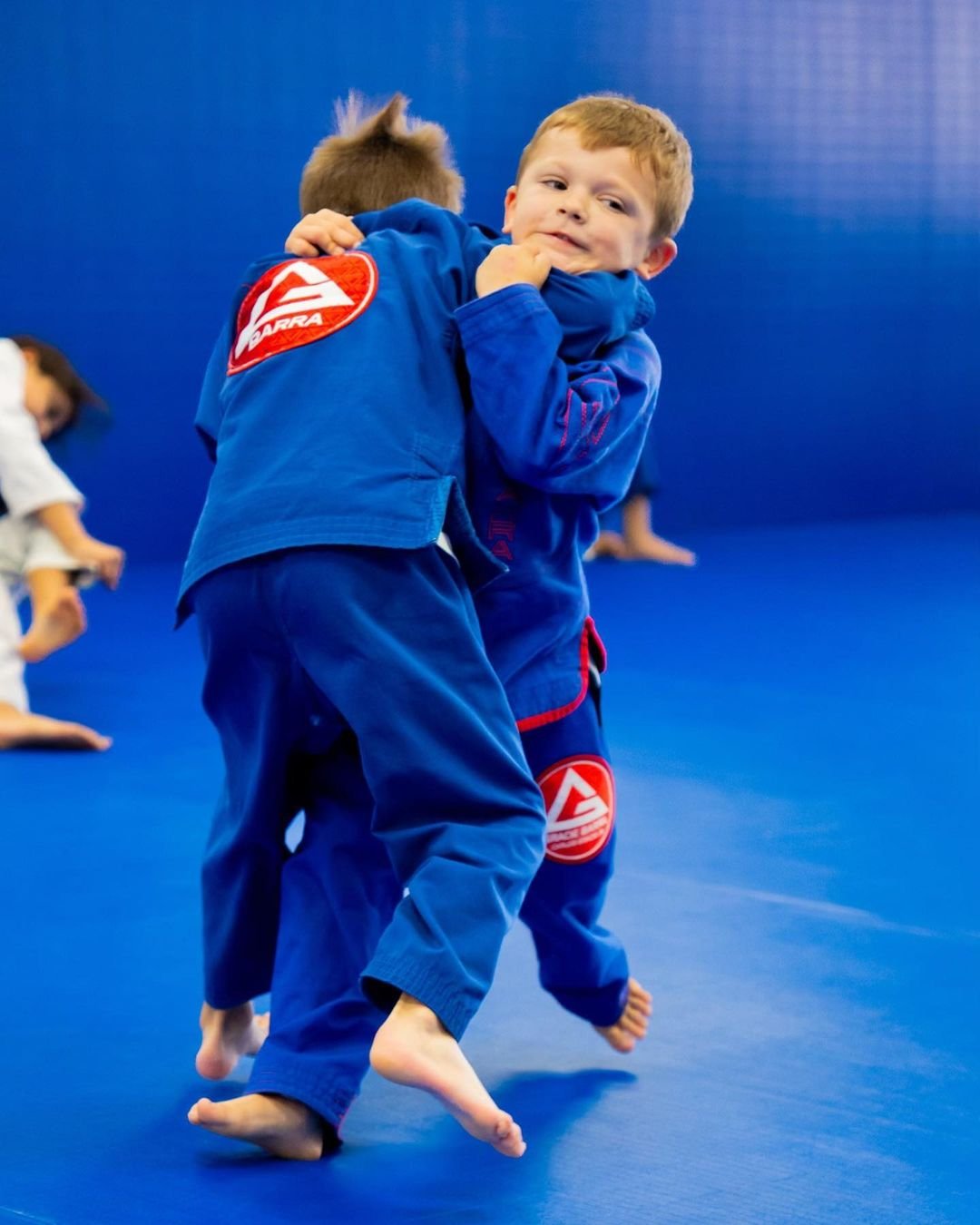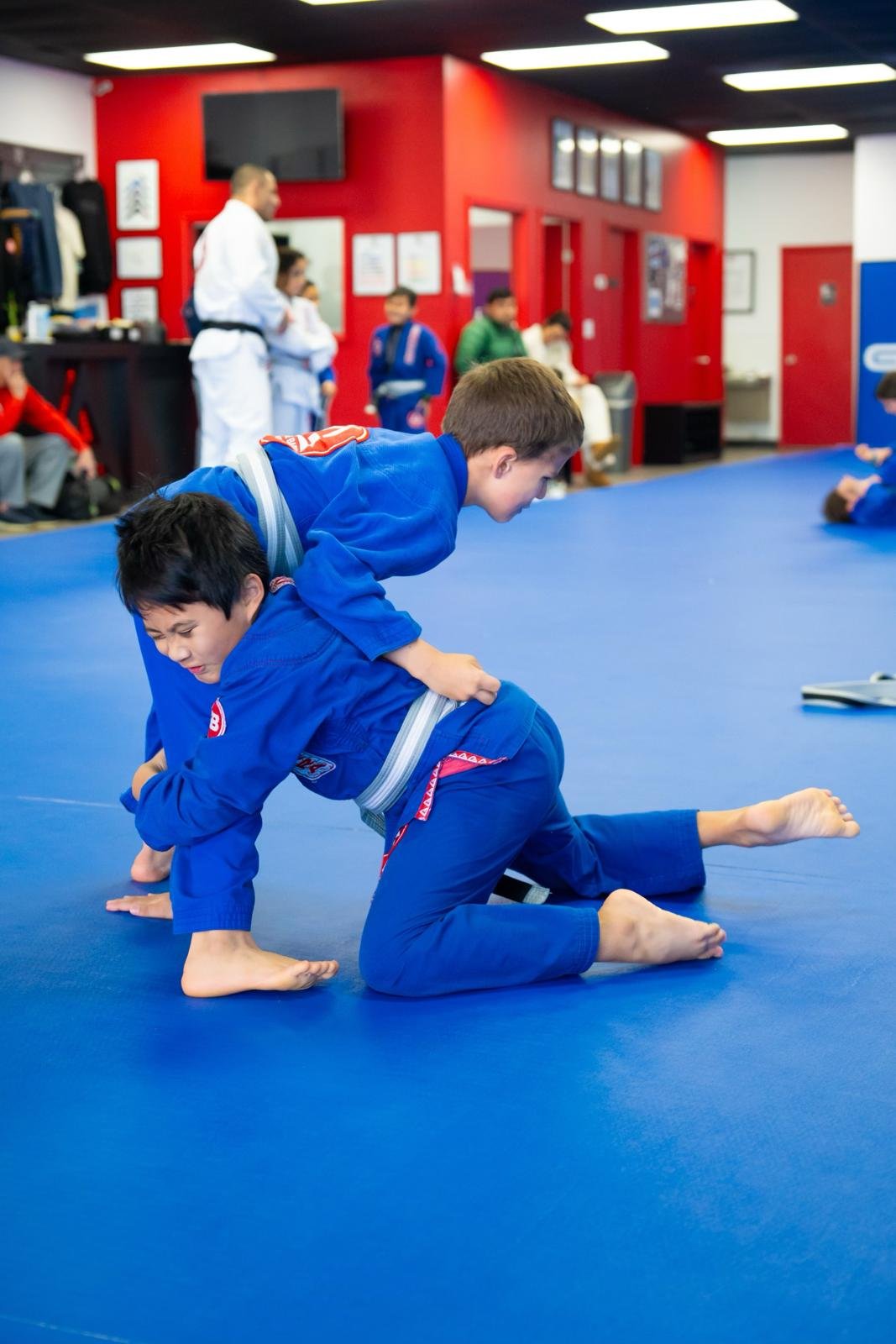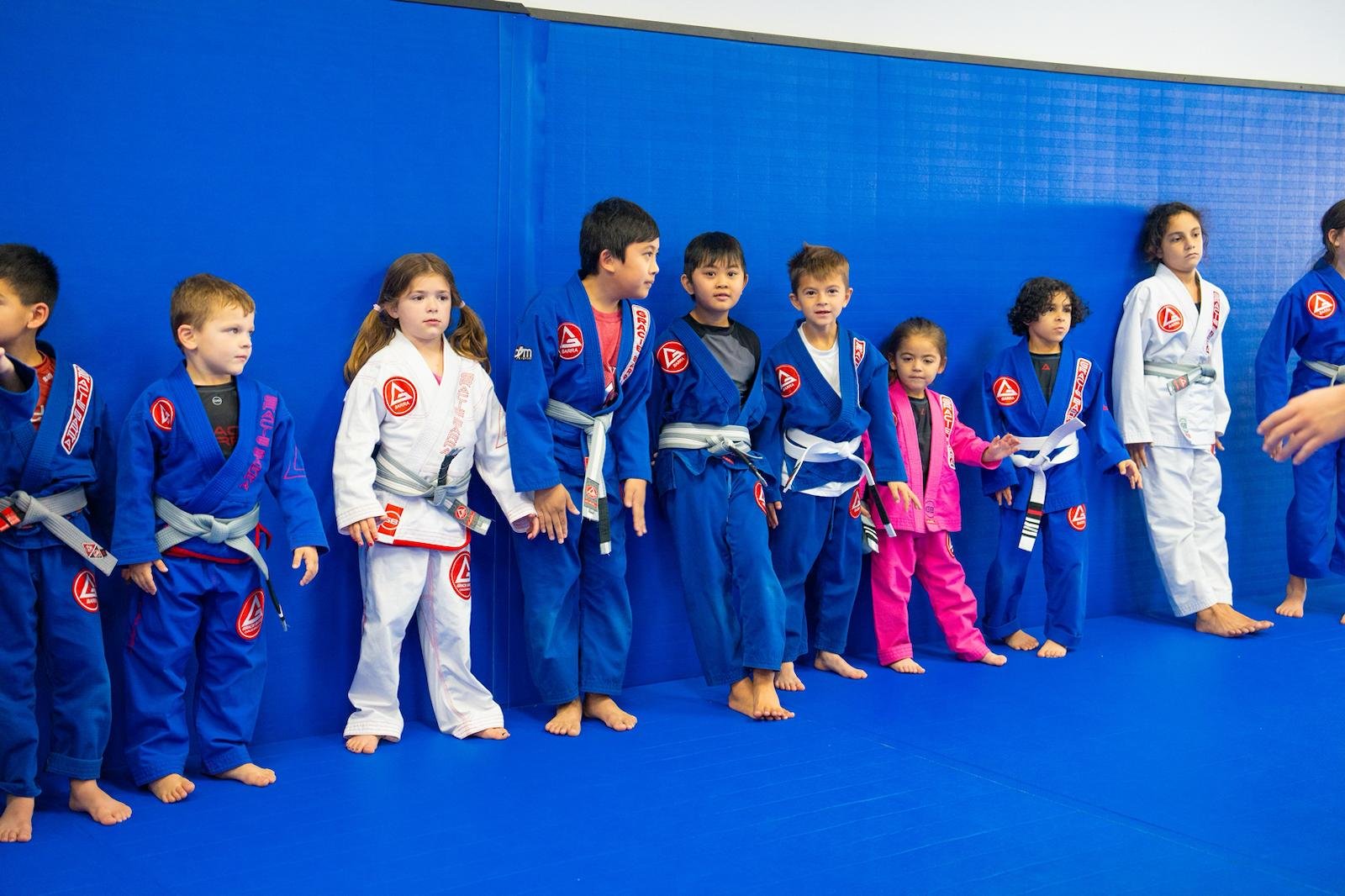A transformative discipline that goes beyond the physical, it profoundly shapes children’s holistic development. In this article, we explore how BJJ fosters values, skills, and emotional growth in young practitioners.

Brazilian Jiu-Jitsu (BJJ) offers a varied range of movements, enhancing children’s physical well-being. By refining motor skills, building muscle strength, and improving flexibility, regular practice establishes a solid foundation for their overall development. Moreover, these physical activities promote not just health, but also endurance and resilience.
Central to BJJ is the cultivation of discipline, teaching children profound respect for rules, instructors, and peers. Following a structured training regimen and honoring the academy’s hierarchy, they develop crucial self-discipline traits. Consequently, these skills extend to other aspects of life, fostering respect for authority and a sense of responsibility.
Through their BJJ journey, children experience a noticeable boost in self-assurance and self-worth. Mastering new techniques, overcoming challenges, and receiving recognition for progress are pivotal moments that strengthen their belief in themselves. This newfound confidence propels them not only in martial arts but also in other endeavors, empowering them to face challenges with resilience.
BJJ teaches valuable lessons in resilience and perseverance, emphasizing the importance of persistence in the face of obstacles. Confronting initial setbacks, refining techniques, and ultimately mastering them instills a strong resolve and unwavering determination. As a result, children develop a growth mindset that helps them navigate life’s challenges with grace.
The communal environment of BJJ training provides a unique platform for children to develop essential social skills. Engaging with training partners, working collaboratively, and respecting boundaries promote effective communication, teamwork, and empathy. These interactions also foster lasting friendships and a sense of belonging to a supportive community.
BJJ not only imparts self-defense skills but also instills a deep awareness of personal safety in children. Equipped with the knowledge to handle risky situations, they gain confidence in safeguarding themselves across various environments. This heightened sense of self-reliance empowers them to navigate the world with confidence and assurance.

Within Brazilian Jiu-Jitsu, children learn the perpetual nature of learning, understanding that practitioners at all levels are continually evolving. This cultivates humility, a vital trait encouraging openness to new knowledge, respect for others, and an appreciation for ongoing growth.
Jiu-Jitsu teaches children essential lessons in patience and emotional management. Handling pressure during training and navigating challenging situations help them maintain composure and make thoughtful decisions, crucial skills for facing life’s trials with equanimity.
Beyond physical advantages, Jiu-Jitsu positively impacts children’s mental health. Regular practice reduces stress, boosts self-esteem, and fosters a sense of fulfillment. These benefits significantly improve their quality of life, promoting a greater sense of balance and happiness.
Engaging in Jiu-Jitsu nurtures a deep sense of community and belonging for children. Through teamwork and shared experiences with training partners, they forge meaningful connections and learn the value of collaboration in achieving common goals.
Jiu-Jitsu goes beyond technique repetition, encouraging children to express creativity and imagination. Exploring different strategies and adapting movements to diverse situations fosters cognitive agility and nurtures critical and innovative thinking.
In addition to physical training, Jiu-Jitsu acts as a platform for educating children on holistic health. Instructors cover topics like nutrition, sleep, and self-care, empowering children to adopt lifelong habits for their overall well-being and longevity.

Participation in Brazilian Jiu-Jitsu emerges as a potent catalyst for children’s personal development, fostering values, skills, and emotional and mental maturation. Through engagement in BJJ, children not only acquire physical and technical prowess but also cultivate essential traits conducive to life-long success, including discipline, self-confidence, resilience, humility, and emotional control. These enduring benefits equip children to navigate life’s challenges with confidence and compassion, positioning them to seize opportunities and thrive as confident and accomplished adults.